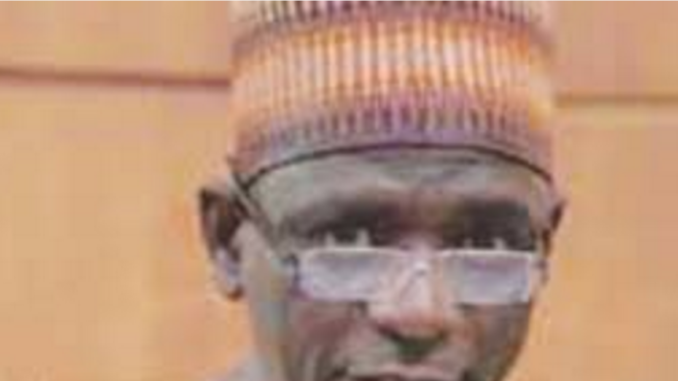
THE wrenching controversy over the new basic education curriculum is mercifully winding down, but the passions ignited are still reverberating. From the start to its seeming conclusion, it reveals the prevalent lack of rigour by policymakers and leaders and the sectarian fault lines in the polity. Now that some sanity has been breathed into the debate, stakeholders should resolve to confront the demons of disunity and mutual hostility and adopt a more sensible approach to education.
Rounding off a stakeholders’ meeting in Abuja on Thursday, the Minister of Education, Adamu Adamu, ordered the Nigerian Educational Research and Development Council to revert to the teaching of Christian Religious Knowledge and Islamic Religious Knowledge as separate subjects as was the case before the introduction of a new basic education curriculum in January 2015. The announcement immediately doused some of the tension that had been raging across the land, deepening the mutual suspicion, acrimony and hostility between ethnic nationalities and between faiths. Cries of a creeping, sinister attempt to “Islamise” the country and of domination rose by several decibels, laced with incendiary speeches.
But for the quirky incompetence of bureaucrats, lack of rigour by those entrusted with advising political leaders and the carelessness of political office holders at the highest level, the controversy need not ever have arisen. What are the facts? The mess started in 2010 when a national summit on education resolved to reduce the unwieldy 20 odd subjects taught in the first nine years of schooling to a more manageable number. With NERDC as the arrowhead, the Federal Government in 2012 approved a review to rationalise subjects taught in public primary schools and junior secondary schools. The agency explained that in 2014, a nine-year curriculum was approved for implementation. The contentious issue however was the reported joining of CRK and IRK with Security Education and Social Studies under a new omnibus subject heading of Religion and National Values.
This was, at best naive, at worst insensitive, and patently unreasonable. It followed probably from official obsession with religion and refusal to accept that Nigeria is a secular state where religion should as much as possible be left to the individual. Significantly, they did not think of restoring history to its former prominence.
It also does violence to the fundamental freedom of choice spelt out in the constitution. No one should be compelled to expose himself or his children to any faith in the name of a false notion of “unity.” Religion is personal and faiths and the values they inculcate shape the character of the growing child. The right of parents to mould the character of their children within the ambit of the law should not be interfered with. No one has the right, not even the state, to compel a Muslim boy to study CRK except his parents, or a Christian girl IRK, until they reach the legal age of consent to do so themselves.
Now that Adamu has admitted that “water and oil” were merged and should be separated, he needs to also quickly address concerns over the teaching of foreign languages and allegations that Arabic, a language closely linked with Islam, is being forced on pupils against their parents’ will. We stoutly oppose a situation where, by omission or commission, any foreign language is forced on pupils.
Nigerians were ill-served by their religious leaders; while the Sultan of Sokoto has confessed to how religious leaders pushed government into the folly, the Christian community was fighting a just battle with the weapons of emotion. They framed the curriculum controversy as part of a “grand plot” by the Muhammadu Buhari administration to “Islamise” the country. Clerics should not only be informed, they should be guarded in voicing comments. The curriculum saga, from start to finish, was initiated under the Goodluck Jonathan administration and produced and implemented by a NERDC headed by Godswill Obioma, a professor of mathematics education and evaluation; ministerial approval in 2014 for implementation was by then Education Minister, Nyesom Wike, now Governor of Rivers State. Approval for implementation beginning from January 2015 was given by Jonathan; surely, all these avowed Christians could not have set out to “Islamise” Nigeria on behalf of an administration that was then in opposition!
The most important task for policy planners is to change the entire philosophical underpinning of our education system. For too long, we have been toying with the destiny of our children by introducing disorderly changes to the school curriculum. Nigeria should adopt a more robust system and, like the world’s most successful countries, opt for STEM – science, technology, engineering and mathematics – as well as history. The United States, Australia, Canada, Germany, Singapore, Malaysia and China have long emphasised this approach. It exposes pupils to these fields, which drive innovation and technology, from primary and secondary schools. Not surprisingly, the international business school INSEAD’s ranking of the world’s top 10 innovative countries are Switzerland, the United Kingdom, Sweden, Finland, the US, Singapore, the Netherlands, Denmark, Luxembourg and Hong Kong.
The Economist of London attributes successful economic feats achieved by China, South Korea, Taiwan and Hong Kong to their solid educational policies. Nigeria demonstrates its backwardness by expending so much energy on religious affairs when the teaching of history has almost disappeared from the curriculum. We are producing graduates who know nothing about their past, the reality that, according to educators, shapes both their present and their future. Malaysia’s National Education Blueprint 2013-2025, apart from universal access, encapsulates STEM and won the endorsement of UNESCO, the World Bank and OECD.
Our educational system needs an urgent overhaul; our leaders should emphasise the development of the youth for today’s challenges and spare them the poisonous politicisation of religion.
END

Be the first to comment